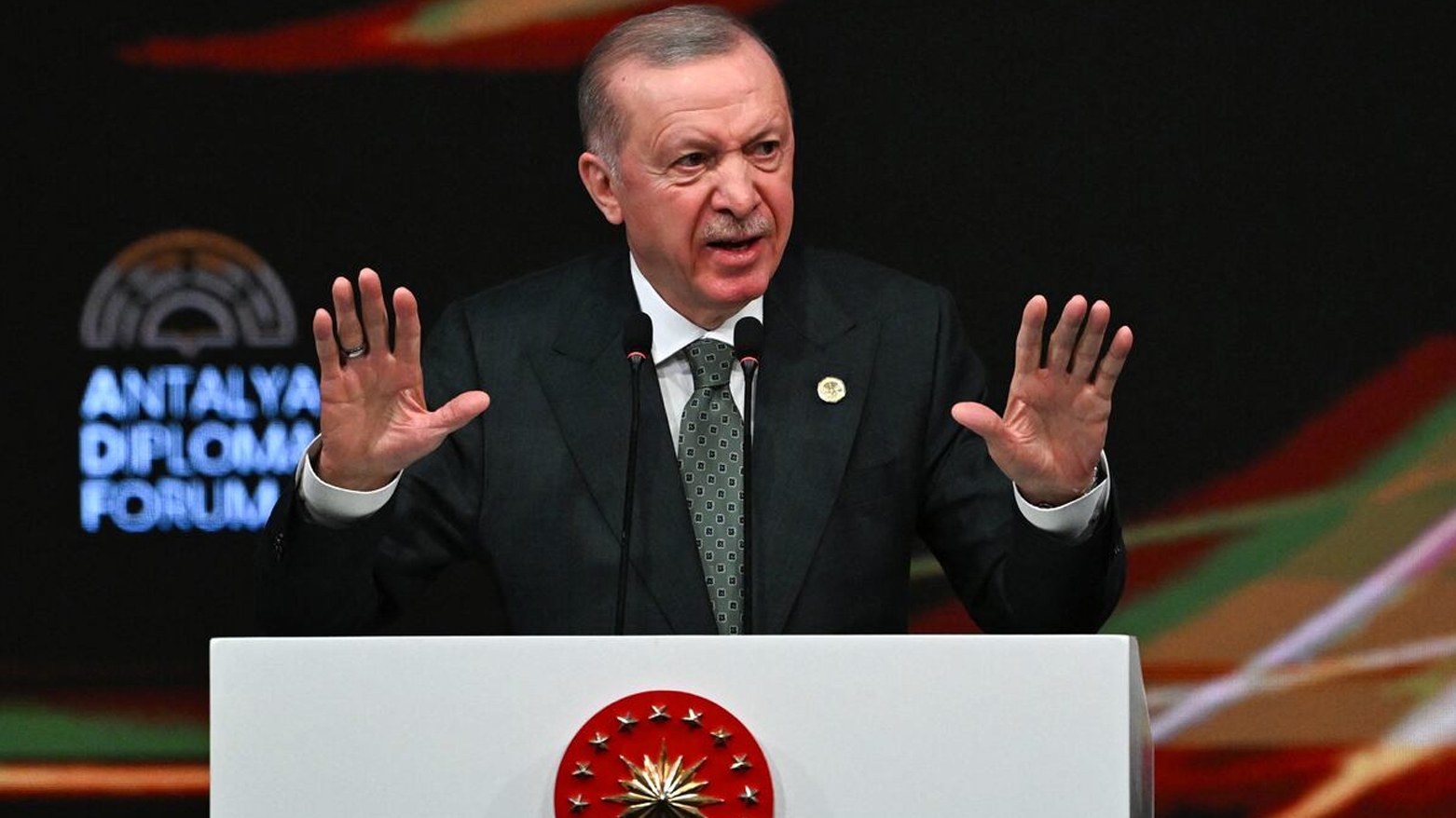Erdogan Defends Iran’s Right to Retaliate, Slams Netanyahu as ‘Regional Threat’
Erdogan slams Netanyahu as 'greatest regional threat', backs Iran's 'legitimate right' to self-defense. Calls Israeli strikes 'state terrorism', warns Turkey is prepared for conflict fallout as tensions escalate.

ERBIL (Kurdistan24) – Turkish President Recep Tayyip Erdogan on Wednesday fiercely criticized Israeli Prime Minister Benjamin Netanyahu, labeling him the “greatest threat to regional security,” and affirmed that Iran holds a “legitimate right” to defend itself against Israeli attacks.
Erdogan’s remarks came amid escalating hostilities between Israel and Iran, which have seen both countries launch missile and drone strikes against each other since last Friday. The Turkish leader described Israel’s actions as “state terrorism” and condemned its offensive as being timed deliberately to undermine ongoing nuclear negotiations with Tehran.
Ankara on Alert for Regional Fallout
“The Israeli attacks were carried out while nuclear negotiations with Iran were still underway,” Erdogan said, noting that “Israel, which possesses nuclear weapons and abides by no international norms, chose to launch its terrorist operation without waiting for the outcome of talks.”
Reiterating his country's position, Erdogan stated: “It is Iran’s natural, legal, and legitimate right to defend itself against Israeli state terrorism.”
The Turkish president emphasized that Ankara is prepared for any scenario, saying: “We are closely monitoring Israel’s terrorist attacks on Iran. All our institutions are at the highest level of readiness for any potential fallout. We are preparing for every possible scenario. No one should dare test us.”
Escalating Regional Conflict
Since the early hours of Friday, Israel has conducted a wave of strikes on Iranian military and nuclear infrastructure, prompting Tehran to respond with ballistic missiles and drones, including a hypersonic missile, according to Iranian sources.
Tensions between the two arch-rivals continue to rise, with wider regional implications prompting growing concern in neighboring states, including Turkey, which now finds itself bracing for potential spillover.